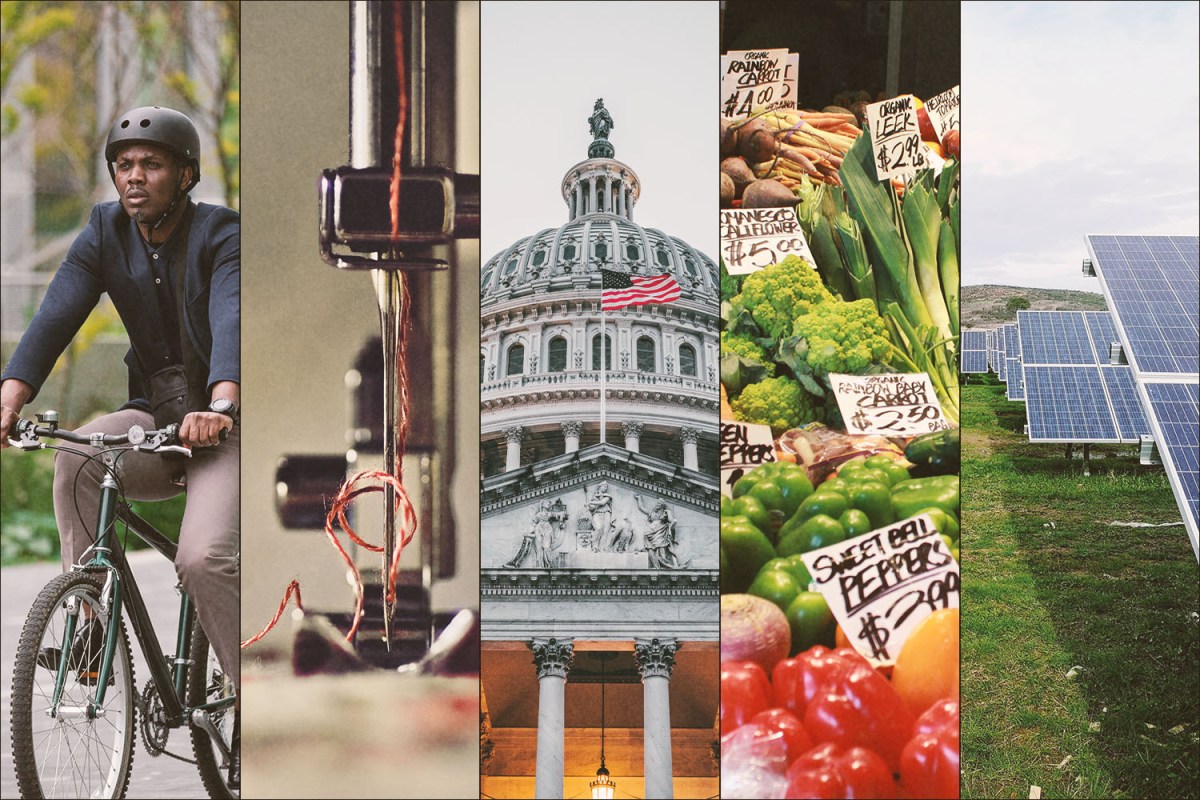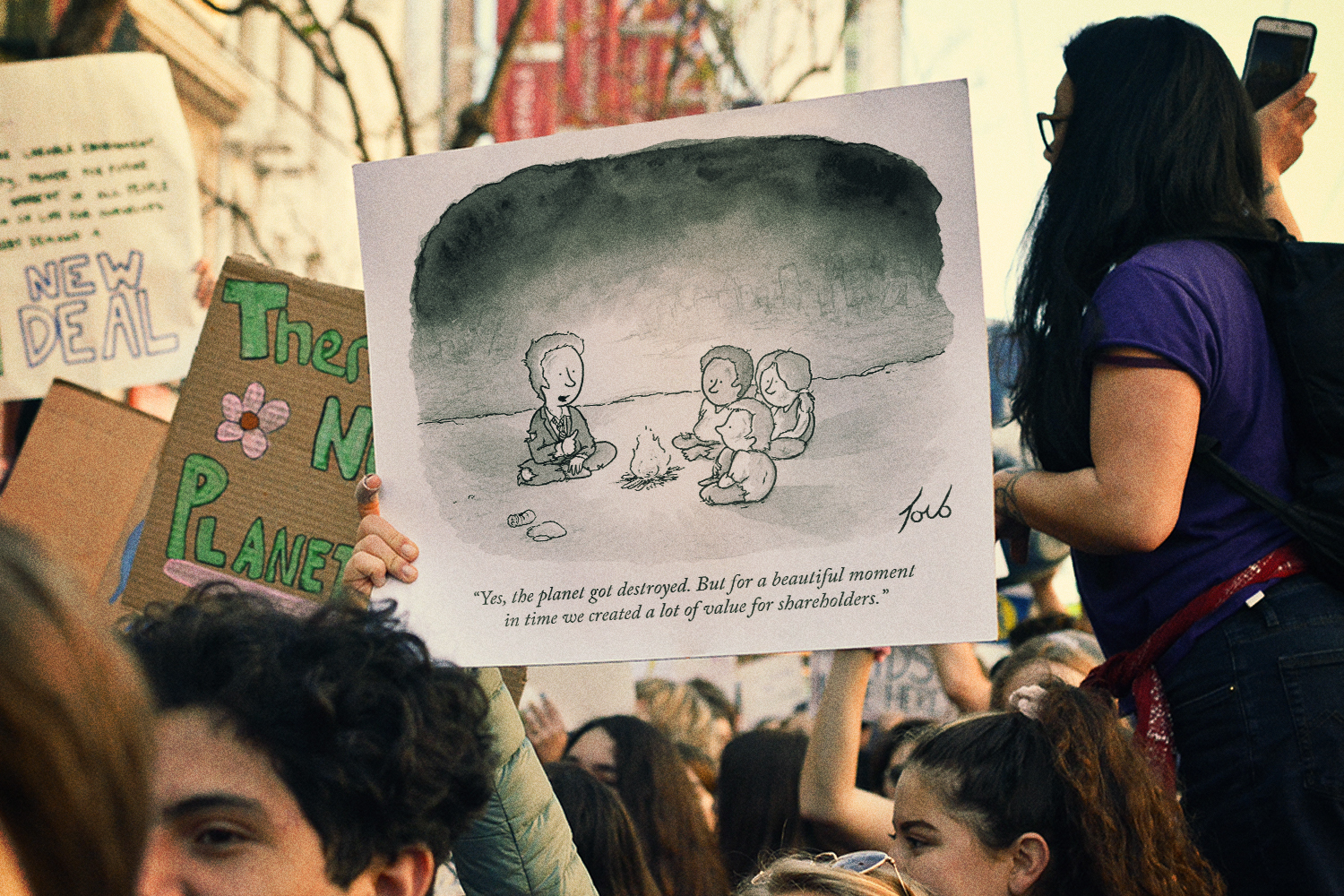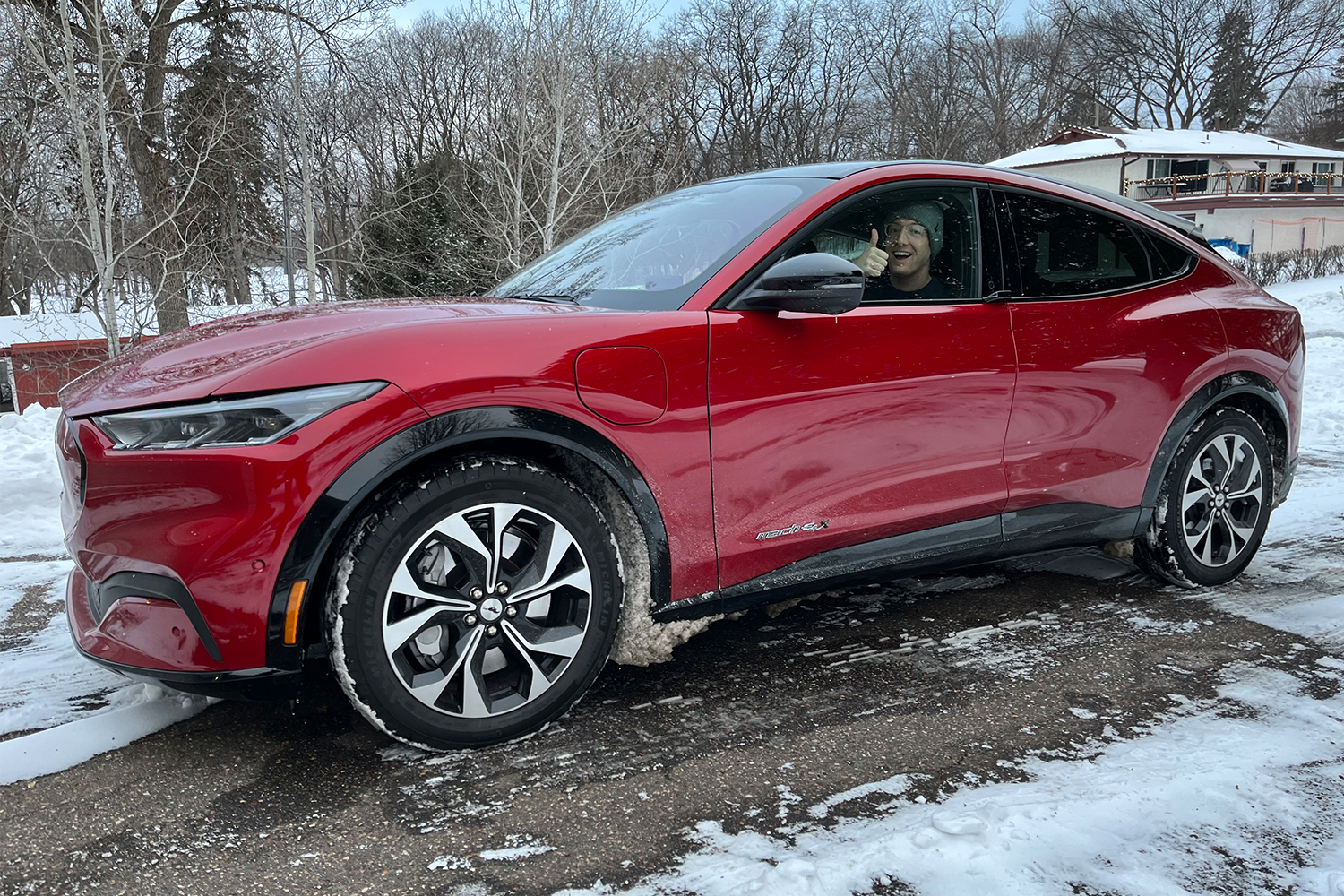Today, you will be bombarded with many well-intentioned Earth Day calls to action (and some not so well-intentioned — looking at you, oil company social media managers). These will include buying so-called “sustainable” goods, from reusable coffee mugs to clothing made from oceanbound plastic to electric cars. We’ve championed many companies engaged in the admittedly tough process of decreasing their environmental impact, but today, we’ve got a different message for you: Don’t buy from them.
This Earth Day, we’re recommending you keep your money. Go ahead and put it away. Don’t buy a metal straw, a wooden toothbrush or a tote bag with a catchy slogan. (You can do that another time.) Instead, give the one thing that’s going to make the most difference in the fight against the climate crisis: your time.
We’ve seen the oncoming train that is human-caused, greenhouse-gas-powered climate change for a long time. We’ve felt its forerunners in the form of intensified wildfires, floods and hurricanes. We’ve heard the alarm bells sounded by scientists, including in the most recent report from the Intergovernmental Panel on Climate Change (IPCC), which included a plea from co-chair Hans-Otto Pörtner that “any further delay in concerted global action will miss a brief and rapidly closing window to secure a liveable future.”
What do we — that is, you and me, us regular people — do with that knowledge? “Concerted global action” certainly seems to be far above our pay grade, considering we all have our own jobs, families and lives to deal with, not to mention a pandemic, the threat of war and seemingly constant political turmoil. The default course of action for many is to buy our way into a sense of safety — whether through a planet-friendly Patagonia hoodie or a donation to an environmental nonprofit — or to simply ignore the problem all together. I’ve certainly done all three at various points.
But in the fight for a liveable future, time is not money. The time you can devote is much, much more important. The environmental movement has thankfully been shifting the focus in recent years away from personal accountability to systemic change, since you won’t limit global warming to 1.5 degrees Celsius (and thus thwart the worst catastrophes of climate change) by eating an Impossible Burger once a month and buying carbon offsets for your European vacations. We can however limit warming if the largest companies and governments come together to slash greenhouse gas emissions in half by 2030 and reach net-zero emissions by the 2050s. And how do said companies and governments reach that point? We tell them that’s what we want, through speech and actions and time.
This doesn’t mean you need to, starting this very moment, call yourself a climate activist and glue yourself to the front of a fossil fuel-funding bank. (If you want to do that, more power to you.) But in a world where we pack our schedules to the brim, you do need to set aside time to make climate change action a part of your weekly routine.
What can you give up to steer us off the “track towards an unliveable world,” as U.N. Secretary-General António Guterres recently put it? Instead of $100 or $1,000, can you give up a workout? A night at the bar? A golf game? Giving up a little bit of leisure time seems like a fair trade-off.
Using Your Time to Solve the Climate Crisis
Time to call your legislators: Is this an obvious one? Possibly, but it’s an avenue not nearly enough people go down. Your political representatives certainly field floods of calls when divisive issues hit the news, but what do they take seriously? When their constituents continuously call them during down times about certain issues. This includes your U.S. senators and representatives, but also your state and local legislators. Check in once a week with someone who represents you and ask them about big-picture issues (like national climate legislation) as well as ones that directly affect you (like clean energy infrastructure for your utilities).
Time to protest: Another thing you should call your legislators about? The insidious movement in the U.S. to criminalize climate protest. Better yet, you should join said protesters in your community, whether it’s a general march for climate action or an event about expanding fossil-fuel infrastructure in your community. For those who are skeptical about the effectiveness of this all, there’s the example of the new Line 3 pipeline in Minnesota: It was completed, but the large contingent against the project during its construction has led to people keeping eyes on it ever since, exposing the environmental damage it’s causing even before the oil becomes emissions. Constant pressure could lead to its demise.
Time to volunteer: Your local environmental organization needs you. The best place to start: 350.org, an international group focused on climate action that has outposts in cities across the globe, and likely one near you. The Sierra Club also has local chapters, and Patagonia Action Works collects smaller local organizations in one easy-to-search feed. You don’t need to devote a ton of time, and you don’t need to have a certain set of skills, as many of these groups will take whatever you can offer: letter writing, event organizing, graphic design, fundraising, the list goes on. Volunteering with a climate group near you is also the easiest way to stay up to date on the legislation in your state, because they’re likely keeping track of it.
Time to travel: Buying an electric vehicle is a good idea that you should certainly consider. Better still? Uncoupling yourself from the default automotive mindset. We know that walking, biking and taking public transportation means fewer emissions than driving a gas-powered car, but those transportation choices also cost you more time. It’s worth it. This can be seen as shifting the blame to the individual rather than the system, but cities aren’t going to start reconfiguring themselves to be more pedestrian and bike friendly or invest in electric buses if no one is walking, biking or taking the bus.
Time to support a climate-friendly community: Climate change is an overwhelming problem. Even the individual pieces — like energy, agriculture, consumerism — are overwhelming by themselves. But individual actions can have cascading effects. Have you ever looked at the energy options available to you through your electricity provider? You may be able to choose to get your electricity through renewable sources like wind and solar; if not, you can tell your provider that’s a choice you’d like to have in the future. Going to Costco is fast, but planning out meals based on what’s available through farmers markets and community-supported agriculture (CSA) boxes will support your local food system. As for all those sustainable clothing brands, you can do them one better by repairing your torn jeans, sewing buttons back on shirts and taking worse-for-wear blazers to the tailor. These are all individual actions, yes, but those that have the potential to snowball in your community.
None of these ideas are new. What does feel new is the perspective that the climate crisis is too heavy a burden to carry, leading many to put it out of their minds. If you feel that way, try taking time out of your busy schedule to do something, or everything, on this list. When you’re done, you may find that oncoming train has slowed a bit.
Whether you’re looking to get into shape, or just get out of a funk, The Charge has got you covered. Sign up for our new wellness newsletter today.























